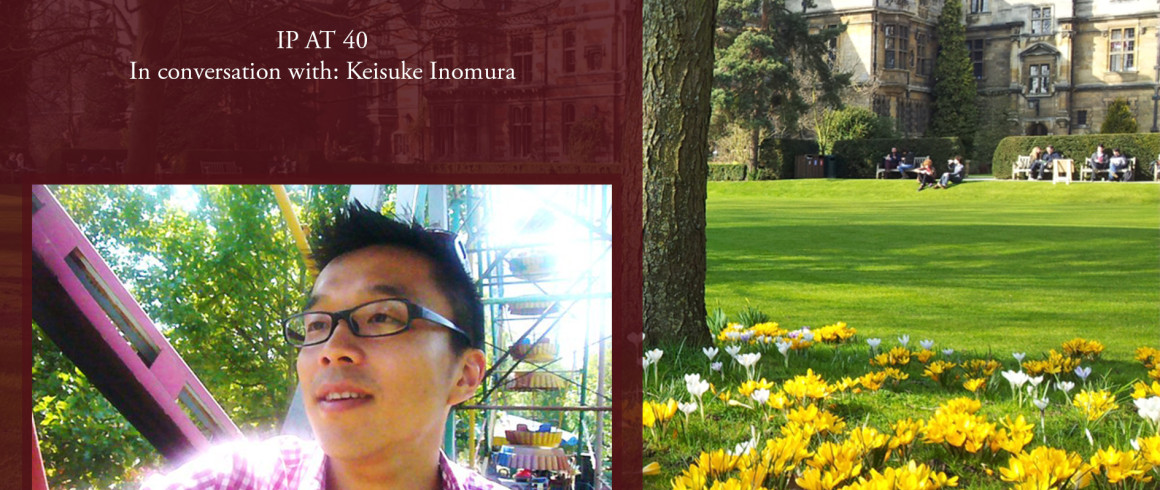IP at 40: In Conversation with Keisuke Inomura
To celebrate the 40th anniversary of International Programmes (IP) at Pembroke, we are doing a series of profiles in 2017 on former students and staff who were involved with IP and the effect this experience had on them or on Pembroke.
This second profile is an interview with Keisuke Inomura, who was a student with International Programmes in 2006. 
What is the topic of your research?
At Kyushu University I was in the agriculture department studying agricultural civil engineering. My research was titled "Numerical analysis of advection and diffusion of liquid manure in a paddy field". I graduated Kyushu University in 2009, and I continued studying there for a Master's degree until 2011. My research topic was similar that in my undergraduate programme, but focused more on the application of the model, with which I proposed effective methods in evenly spreading liquid manure in a paddy field. I moved to MIT for my Ph.D. in 2011. I defended my these is May 2016 and achieved a Ph.D. in climate physics and chemistry. At MIT, my research focus is in developing a simple metabolic flux model of micro-organisms. With the model, we will provide more numerical information to biology in a intuitive manner, and the model can be applied to different purposes, such as studying cell metabolisms and ecosystems.
What was your experience of the Pembroke-Kings Programme?
I was at Pembroke college in 2006. My original purpose was to study English and to experience the life at one of the world top universities. The programme certainly help me improve in English, but what I got out most from this programme was that I could learn how people at the university of Cambridge communicate academic subjects. They discuss academic subjects as if they are talking about daily topics such as weather, what their friends are doing, etc. And they really enjoy the discussion. Before my visit at the university of Cambridge, my study was mostly reading, writing, and answering questions on books. They have certainly been the base of my scientific knowledge and they will continue to be so, but since the programme in Pembroke college my study has shifted more towards output of knowledge through discussion. This has helped me in obtaining even wider knowledge, as well as in improving in scientific communication skills, which I believe is important in order to be influential in an academic community.
Did you enjoy life at Pembroke?
My life in Pembroke was great. After a few weeks you really begin to feel the history of academia, and on campus students and scholars seem to naturally get into a habit of being academic. This spirit of academia has stayed with me ever since.
What's next?
With my Ph.D. degree, I will pursue a career as a scientist in computational biology
